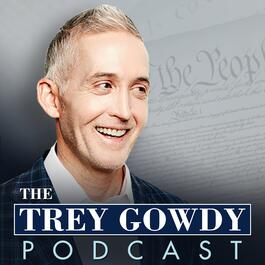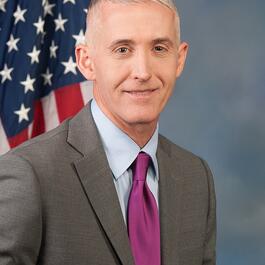
The Trey Gowdy Podcast
Trey Gowdy former federal prosecutor and four term United States Congressman from South Carolina brings his one of a kind style to the podcast platform. Every week you’ll hear original commentaries and power player interviews. Don't be surprised if his former congressional colleagues stop by from time to time as well.
Show episodes
“The world is flawed, and it is imperfect, but we should not surrender to that.” Trey reflects on the recent acts of violence that overtook the weekend during what is supposed to be a season of joy and family, forcing a hard look at human cruelty and callousness. He contrasts the darkness with moments of courage and s
It's December, which means it's almost time for the final questions of the year. Trey answers about the redistricting process and shares the top questions he would ask Special Counsel Jack Smith if given the opportunity. Plus, Trey reflects on the end of the 2025 College Football season. Learn more about your ad choice
"How often should I forgive someone who sins against me?" Mercy is powerful, but it also raises difficult questions about gratitude and choice. Trey reflects on forgiveness as both a gift and a responsibility, intersecting a modern political moment and a timeless biblical parable about grace and gratitude. He implores
Hello December! Trey answers questions on the evolution of the Republican Party, the DC National Guard shooting and the final touchdown in the South Carolina Gamecocks 2025 season. Learn more about your ad choices. Visit podcastchoices.com/adchoices
"It is doubtful anyone is going to pay you to sit around and think. And yet, it is one of the most important traits we can develop." Trey reflects on a Thanksgiving weekend filled with family debates, football, and unexpected lessons, and uses it as a springboard into a larger conversation about philosophy. He encourag
This Thanksgiving, Trey takes a look back at one of his favorite conversations, a thoughtful discussion with New York Times best-selling author and Harvard professor Arthur Brooks, about what truly drives human happiness. Together, they explore whether money can influence joy, how to distinguish pride from confidence,


